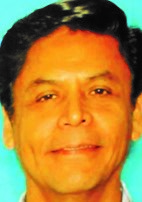Government prosecutors continue to make their case against Dr. Jorge Zamora Quezada, the Edinburg-based rheumatologist who is accused of healthcare fraud.
The trial, which began on Dec. 4 with jury selection, resumed Thursday and another rheumatologist took the witness stand to testify about her time working at Zamora Quezada’s clinic and her experience treating patients in her private practice whom had previously been diagnosed by Zamora Quezada.
Dr. Bricia Toro De Zarei, a Brownsville-based rheumatologist, worked at Zamora Quezada’s clinic from 2002 to 2005.
During her time there, she reviewed MRI reports and on one occasion when she requested a specific MRI report, one physician assistant questioned why she wanted to see it when they were always positive.
She said she continued to read the MRI reports but her level of trust in them had diminished.
Toro also testified that Zamora Quezada allegedly told her she needed to order more MRIs for the benefit of the practice which she understood to mean that they needed more MRIs to bring in more revenue but he didn’t explicitly say that.
She also spoke of the volume of nerve conduction studies that Zamora Quezada would order for patients.
In her current, private practice, she says she orders them about once a month while Zamora Quezada would order them every day for the majority of the patients.
Toro said there were also occasions when she would change the diagnosis of a patient that Zamora Quezada had already seen and discontinue treatment if she disagreed with it.
Despite her concerns over his practices, she says she didn’t report him because she learned he was already under investigation.
After her three-year contract with Zamora Quezada was up in 2005, she opened her private practice in 2006.
She also testified about two patients that she treated after they had been diagnosed by Zamora Quezada with rheumatoid arthritis. However, after her examination of them Toro said she was certain they did not have the disease.
She, instead, diagnosed one of the patients with fibromyalgia and osteoarthritis while she had diagnosed the other patient with psoriasis and osteoarthritis.
Under cross examination by the defense, Toro reiterated that the majority of the patients seen by Zamora Quezada were diagnosed with rheumatoid arthritis and again noted the high volume of nerve conduction studies that were ordered.
However, the defense attorney, Trey Martinez, said billing data from Medicare disputed those claims.
When asked if she had any reason to disagree with the Medicare data, she said that her claims were based on what she saw and could testify as to what was billed to Medicare.
She also acknowledged that there were times when she did agree with Zamora Quezada’s diagnosis of a patient.
Testimony for the trial is scheduled to continue Friday morning and the government is expected to wrap up their case on Monday.





